This article will explain How To Get A Loan To Buy A Laundromat? Embarking on the journey to buy a laundromat can be as exhilarating as it is meticulous. Securing a loan is a pivotal step, and it’s crucial to arm yourself with a comprehensive business plan to present to lenders. The Small Business Administration (SBA) loans often emerge as a beacon for aspiring laundromat owners, offering a structured path to financial support.
Key Takeaways
- SBA loans are a popular choice for financing laundromats due to favorable terms.
- A detailed business plan is essential when applying for a loan.
- Understanding your financials and market analysis boosts your loan approval chances.
How To Get A Loan To Buy A Laundromat?
Getting a loan to buy a laundromat involves several detailed steps. Here’s a breakdown:
1. Assess Your Financial Situation
Before you apply for a loan, understand your financial health. Check your credit score, as it will significantly impact your loan terms. Gather your personal financial statements, which should include assets, liabilities, income, and expenses.

2. Develop a Strong Business Plan
A comprehensive business plan is crucial. It should outline your business model, market analysis, competitive landscape, financial projections, and an operational plan. This document demonstrates to lenders that you have a clear vision and strategy for the laundromat.
3. Choose the Right Type of Loan
Research to determine the best loan for your needs. Options include:
- SBA Loans: These are government-guaranteed loans with favorable terms.
- Conventional Bank Loans: Traditional loans that may require more collateral.
- Investor Loans: Loans from private investors or investment groups.
- Seller Financing: The current owner finances the purchase, which can be beneficial if traditional financing is not an option.
4. Find a Lender
Look for lenders experienced in small business and specifically laundromat financing. Compare terms from multiple lenders to find the best rates and terms.
5. Prepare Your Loan Application
Your loan application should include your business plan, financial statements, credit reports, and any other documents required by the lender. Ensure all information is accurate and presented professionally.
6. Apply for the Loan
Submit your loan application along with all required documentation. Be prepared to answer additional questions or provide more information if the lender requests it.
7. Negotiate Loan Terms
Once your loan is approved, review the terms carefully. Pay attention to the interest rate, repayment schedule, and any covenants or stipulations. Negotiate terms if necessary.
8. Close on the Loan
After agreeing to the terms, you’ll close on the loan. This process includes signing the loan agreement and any other closing documents. You’ll also pay any required down payment or closing costs at this time.
9. Purchase the Laundromat
With financing in place, you can proceed with purchasing the laundromat. This will involve transferring ownership and taking over the operations.
10. Operate Your Business
Once you own the laundromat, begin implementing your business plan. Monitor your business’s financial health closely, especially in the early stages, to ensure you can meet your loan repayment obligations.
Each of these steps requires careful consideration and planning. It’s advisable to consult with financial advisors, accountants, and business brokers who specialize in laundromat businesses to guide you through the process. They can provide valuable insights and help you avoid common pitfalls.
Understanding SBA Loans
The SBA offers loans tailored for small business owners. These loans are not directly from the SBA but are, instead, guaranteed by this federal agency, reducing the risk for lenders and often resulting in more favorable terms for the borrower.
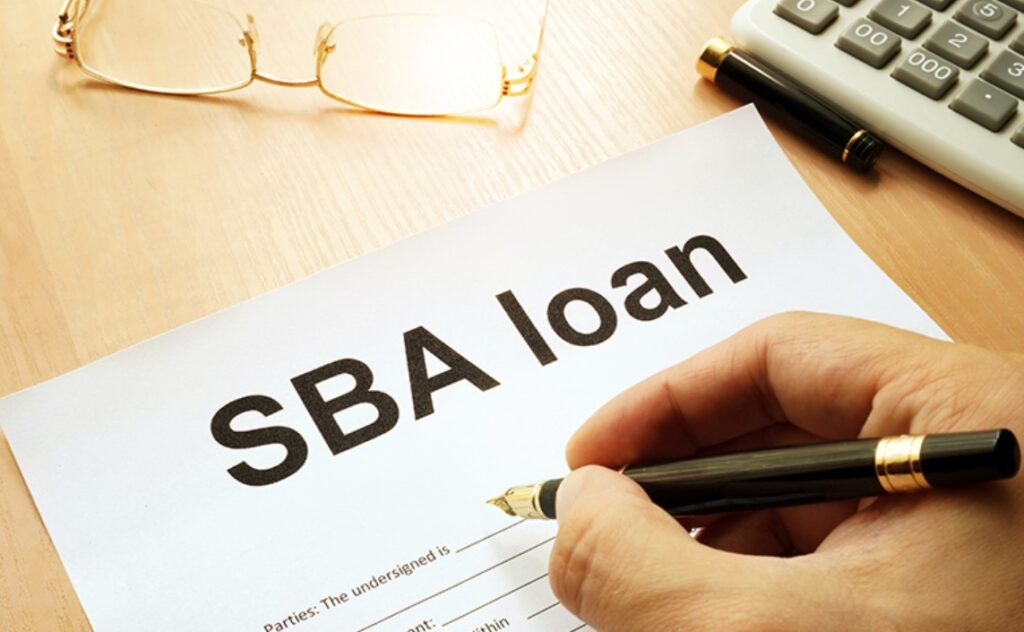
Eligibility and Advantages
To be eligible for an SBA loan, you must have a strong credit score and a solid business plan. The advantages are numerous, including lower down payments, longer repayment terms, and capped interest rates.
Crafting a Winning Business Plan
Your business plan is your roadmap to success, detailing your vision for the laundromat. It should include market research, competitive analysis, and financial projections.
Financial Projections and Market Analysis
Lenders will scrutinize your financial projections and market analysis. These sections must demonstrate profitability and a deep understanding of the laundromat industry.
Loan Application Process
The loan application process can be daunting, but with the right preparation, it can be navigated successfully. Gather all necessary documents and understand the lender’s requirements.

Documentation and Lender’s Criteria
Prepare financial statements, tax returns, and your business plan. Each lender has specific criteria, so tailor your application to meet these requirements.
Location and Demographics
The location of your laundromat is pivotal. Demographics play a crucial role in determining the potential success of your business.
Market Research for Optimal Location
Conduct thorough market research to choose a location that serves a high-demand area with minimal competition.
Financing Options Beyond SBA Loans
While SBA loans are popular, other financing options are available, such as traditional bank loans, investor funding, or personal assets.
Exploring Alternative Funding Sources
Research all available funding sources to ensure you choose the best option for your situation.
Evaluating Laundromat Profitability
Discuss the importance of evaluating the profitability of the laundromat you intend to purchase. Explain how lenders will look at past financial records, the current business model, and projected cash flows. Emphasize the need for a buyer to understand the nuances of revenue generation in the laundromat business, including variable and fixed costs.

Importance of a Strong Credit Score
Elaborate on how a strong credit score can affect loan terms. Provide insights into how potential laundromat buyers can improve their credit scores before applying for a loan. Discuss the impact of credit history on interest rates and loan approval chances.
Offer a detailed look at the components of a loan agreement. Explain common terms and clauses found in loan contracts, and the importance of understanding each element before signing. Advise on seeking legal counsel if necessary to ensure the agreement aligns with the buyer’s financial capabilities and business goals.
Marketing Your Laundromat for Success
Transition into how marketing plays a role in the success of a laundromat and can influence a lender’s decision. Discuss strategies for creating a strong brand presence and attracting customers. Highlight the role of digital marketing and SEO in increasing business visibility.
The Role of Advisors and Consultants
Discuss how advisors and consultants can aid in the loan application process. Explain the benefits of hiring industry experts for market analysis, business plan development, and financial advice. Describe how their expertise can enhance the loan application and increase the chances of success.
Preparing for Ownership
Prepare potential owners for the realities of laundromat management. Discuss the day-to-day operations, the need for customer service excellence, and the management of financials. Offer advice on training, hiring staff, and implementing systems for smooth operations.
How Profitable Is Owning A Laundromat?
Owning a laundromat can be a lucrative investment, with many owners experiencing a return on investment (ROI) ranging from 20-35%. This profitability is due to the consistent demand for laundry services, relatively low labor costs since laundromats can operate with minimal staff, and the ability to scale by adding more locations or services over time.
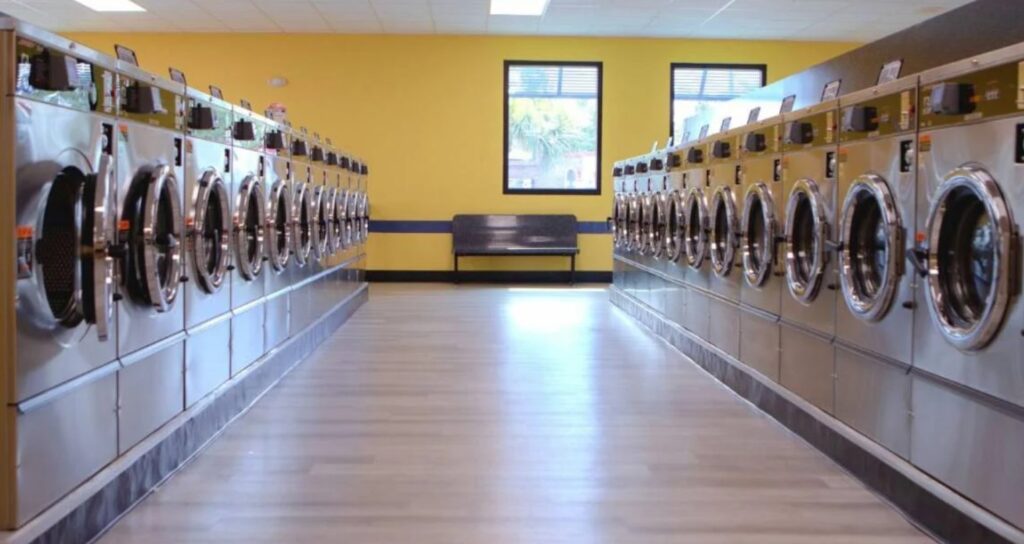
The profit margin can be significantly high as well, often between 20-30%, after accounting for expenses such as utilities, maintenance, lease, and loan payments. However, the actual profitability can vary based on location, management efficiency, and the condition of the equipment.
A well-maintained laundromat in a prime location with modern, efficient machines and additional services like wash-and-fold can command higher prices and attract a steady stream of customers, enhancing profitability.
How Do I Start Investing At A Laundromat?
Investing in a laundromat begins with thorough market research to identify the right location. Look for areas with a high density of renters who may not have access to in-home laundry facilities.
Once a location is identified, you’ll need to either build a new facility or purchase an existing one. If you opt for an existing laundromat, conduct due diligence to assess the condition of the equipment, the lease terms, and the financial health of the business.
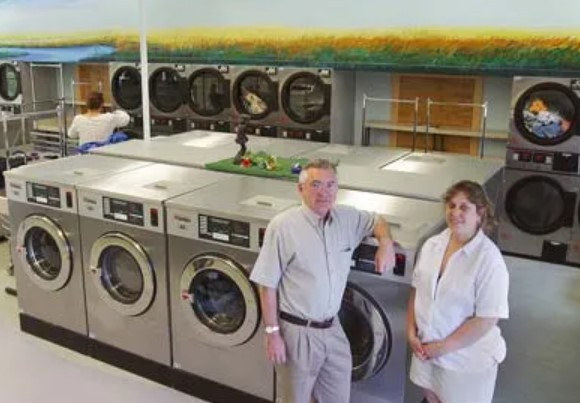
Financing the investment typically involves obtaining a loan, for which you’ll need a solid business plan and good credit. After the purchase, focus on improving the business through better equipment, services, and possibly technology like laundry apps.
It’s also important to have an effective marketing strategy to attract and retain customers. Continuous investment in the business, such as upgrading older machines and maintaining a clean and welcoming environment, is key to long-term success.
Is Buying An Existing Laundromat A Good Investment?
You would want to discuss the pros and cons of buying an existing laundromat. Key points might include the advantage of having an established customer base, existing equipment, and potentially immediate cash flow.
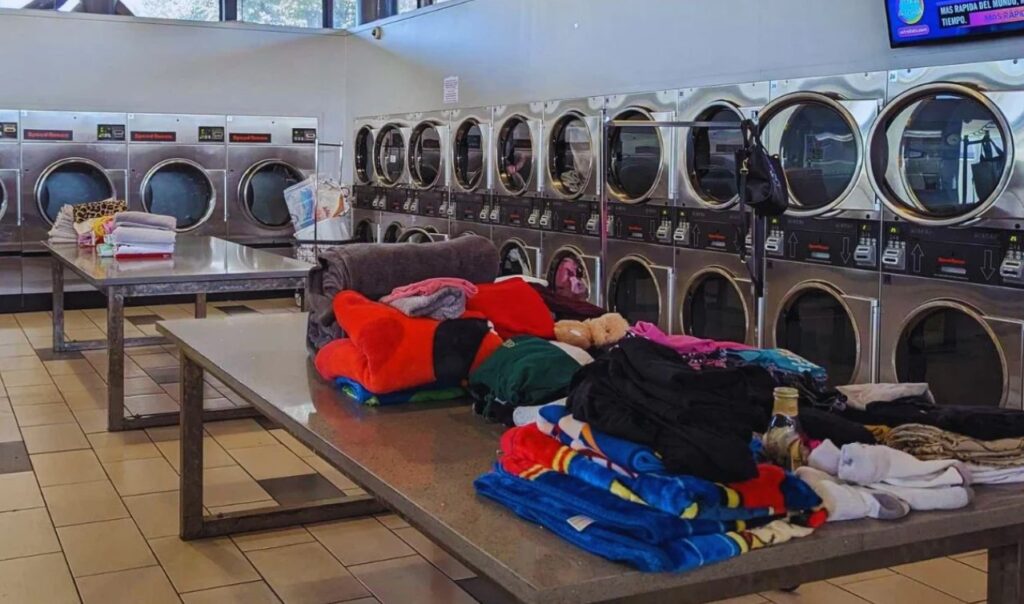
On the downside, there could be issues like outdated equipment or a less-than-ideal location. It’s important to conduct a thorough analysis of the business’s financials, understand the local market, and consider future growth potential.
You can find detailed information and statistics on the profitability and challenges of buying an existing laundromat from industry sources like the Coin Laundry Association or by consulting with a business broker specializing in laundromats.
How To Open A Laundromat For Dummies?
This section would be a step-by-step guide for beginners on opening a laundromat. Topics should cover conducting market research, writing a business plan, securing financing, finding a location, purchasing equipment, and the grand opening.
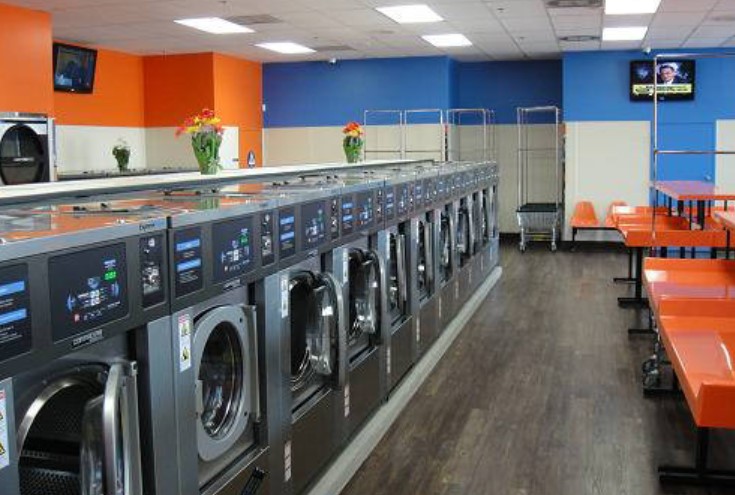
It’s also crucial to understand the regulatory requirements for operating a laundromat, such as permits and licenses. Resources for this information could include small business development centers, laundromat industry publications, and books or guides on starting a small business. It’s also beneficial to talk to current laundromat owners or join a local business association.
Conclusion
In conclusion, securing a loan to buy a laundromat involves a blend of strategic planning and thorough market understanding. An SBA loan could be your ticket to success, but it requires a strong business plan and a clear financial forecast. Boldly present your case to the lender, and you may soon find yourself at the helm of a thriving laundromat business.
Top FAQ’s
What type of loan is best for buying a laundromat?
SBA loans are often considered ideal for buying a laundromat due to their lower down payment requirements and longer repayment terms. They are specifically designed to assist small business purchases.
How much down payment do I need for a laundromat loan?
Typically, lenders require a down payment of 10-30% of the purchase price for a laundromat. The exact percentage can vary based on the loan type and the borrower’s creditworthiness.
What are the interest rates for laundromat loans?
Interest rates for laundromat loans can range from 5% to 8%, influenced by factors such as the type of loan, the lender, the borrower’s credit score, and market conditions.
Can I get a loan for a laundromat without industry experience?
Yes, but it may be challenging. Lenders typically prefer borrowers with industry experience. However, a strong business plan and financials can help offset the lack of experience.
How long does it take to get a loan to buy a laundromat?
The process can take anywhere from 60 to 90 days, depending on the lender and the complexity of the loan application.
A multifaceted professional, Muhammad Daim seamlessly blends his expertise as an accountant at a local agency with his prowess in digital marketing. With a keen eye for financial details and a modern approach to online strategies, Daim offers invaluable financial advice rooted in years of experience. His unique combination of skills positions him at the intersection of traditional finance and the evolving digital landscape, making him a sought-after expert in both domains. Whether it’s navigating the intricacies of financial statements or crafting impactful digital marketing campaigns, Daim’s holistic approach ensures that his clients receive comprehensive solutions tailored to their needs.









